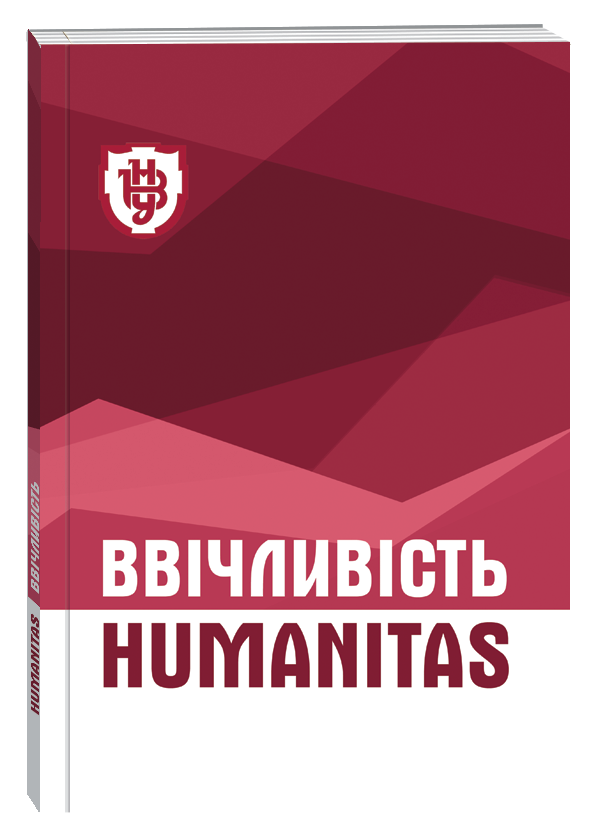SOCIAL SUPPORT OF APPLICANTS OF HIGHER EDUCATION INSTITUTIONS IN THE PROCESS OF DISTANCE LEARNING OF FOREIGN LANGUAGES
DOI:
https://doi.org/10.32782/humanitas/2024.4.12Keywords:
social support, distance learning, foreign language communication, adaptation, motivation, positive educational environment, interactivityAbstract
The main task of social work in institutions of higher education is to support social integration, improve the psychosocial climate in the educational institution, and create a favorable environment for the comprehensive development of students. The main directions for improving the effectiveness of socialization are taking into account the characteristics of each individual student and different groups of students (foreign students, students with special educational needs, socially disadvantaged, privileged categories), monitoring and feedback, psychological support, provision of inclusive services, cooperation with stakeholders and potential employers. The main directions for improving the effectiveness of social work with students of a higher education institution are highlighted: individual approach, monitoring and feedback, expansion of psychological support opportunities, improvement of inclusive services, expansion of mentoring practices, creation of career development and employment centers. An important role in social work with students is played by the constant interaction of various services and divisions, namely: the involvement of the psychological service, legal service, humanitarian department and career centers ensures the coherence of all actions regarding the help and support of students. The key aspects of social work with students of higher education institutions during foreign language learning are highlighted, namely: adaptation of beginning students to a new educational environment, psychological support, social integration, volunteering and international projects, assistance in learning, career counseling, cultural adaptation, mediation and support. It was found that in order to adapt educational materials and teaching methods to the distance format, all educational resources must meet accessibility requirements. Interactivity and gamification act as technologies for effective foreign language learning.
References
Григошкіна Я. В. Сучасні технології викладання іноземних мов: аналіз технологій для забезпечення ефективної індивідуальної освіти. Академічні візії. 2023. Вип. 21. URL: https://academy-vision.org/index.php/av/issue/view/17
Ломакович В. Підвищення мотивації студентів під час вивчення практичного курсу німецької мови в умовах дистанційного навчання. Наукові записки. Серія : Педагогіка. 2021. № 2. С. 113–120. URL: https://www.researchgate.net/publication
Ertl S., Hartinger A., Kücherer B., Furtak E.M. “Formative Assessment in German Student-Teacher-Conference Format: Student Perceptions and Implications for Motivational Aspects of Learning.” International Journal of Elementary Education. 2022. 64–75. URL: https://opus.bibliothek.uniaugsburg.de/opus4/frontdoor/index/index/docId/92818
Gerhard U., Hoelscher M., Marquardt E. Knowledge Society, Educational Attainment, and the Unequal City: A Sociospatial Perspective. Space, place and educational settings. Publisher Springer International Publishing. P. 7–31.
Kazmaier, Daniel [Hrsg.]; Weber, Florian [Hrsg.]: Universität in der Pandemie. Bielefeld : transcript 2023, 478 S. – (Jahrbuch des Frankreichzentrums; 19) – URN: urn:nbn:de:0111-pedocs-284343 – DOI: https://doi.org/10.25656/01:28434; https://doi.org/10.14361/9783839467893
Pasternack P. Unterscheidungen. In: Wissenschaftskommunikation, neu sortiert. Springer VS, Wiesbaden. 2022. DOI: https://doi.org/10.1007/978-3-658-39177-5_13
Schumann J. H., Crowell S. E., Jones N. E., Lee N., Schuchert S. A., Wood L. A. The Neurobiology of Learning: Perspectives from Second Language Acquisition, Lawrence Erlbaum Associates. 2004. URL: http://ndl.ethernet.edu.et/bitstream/123456789/57087/1/155pdf.pdf







